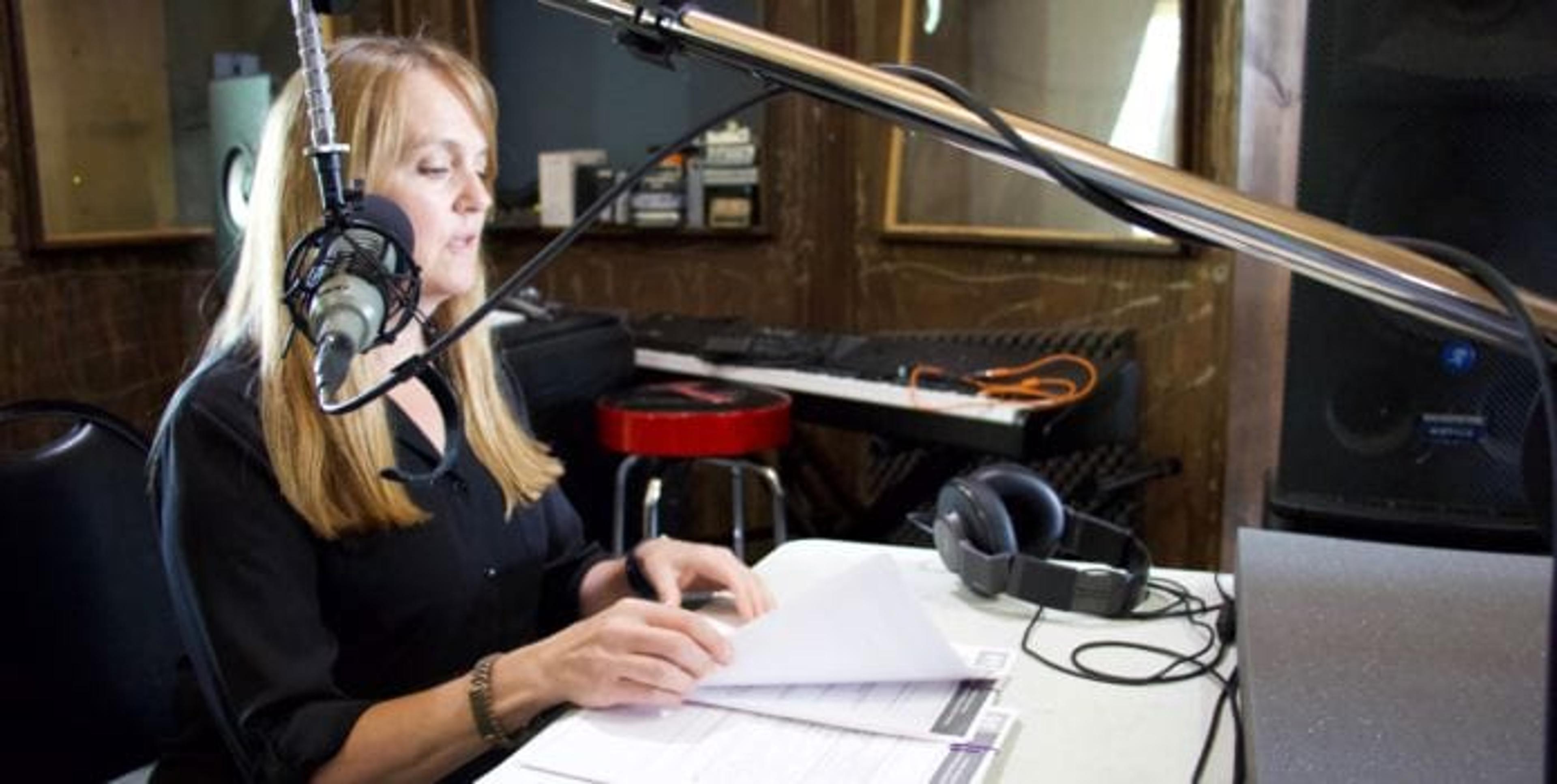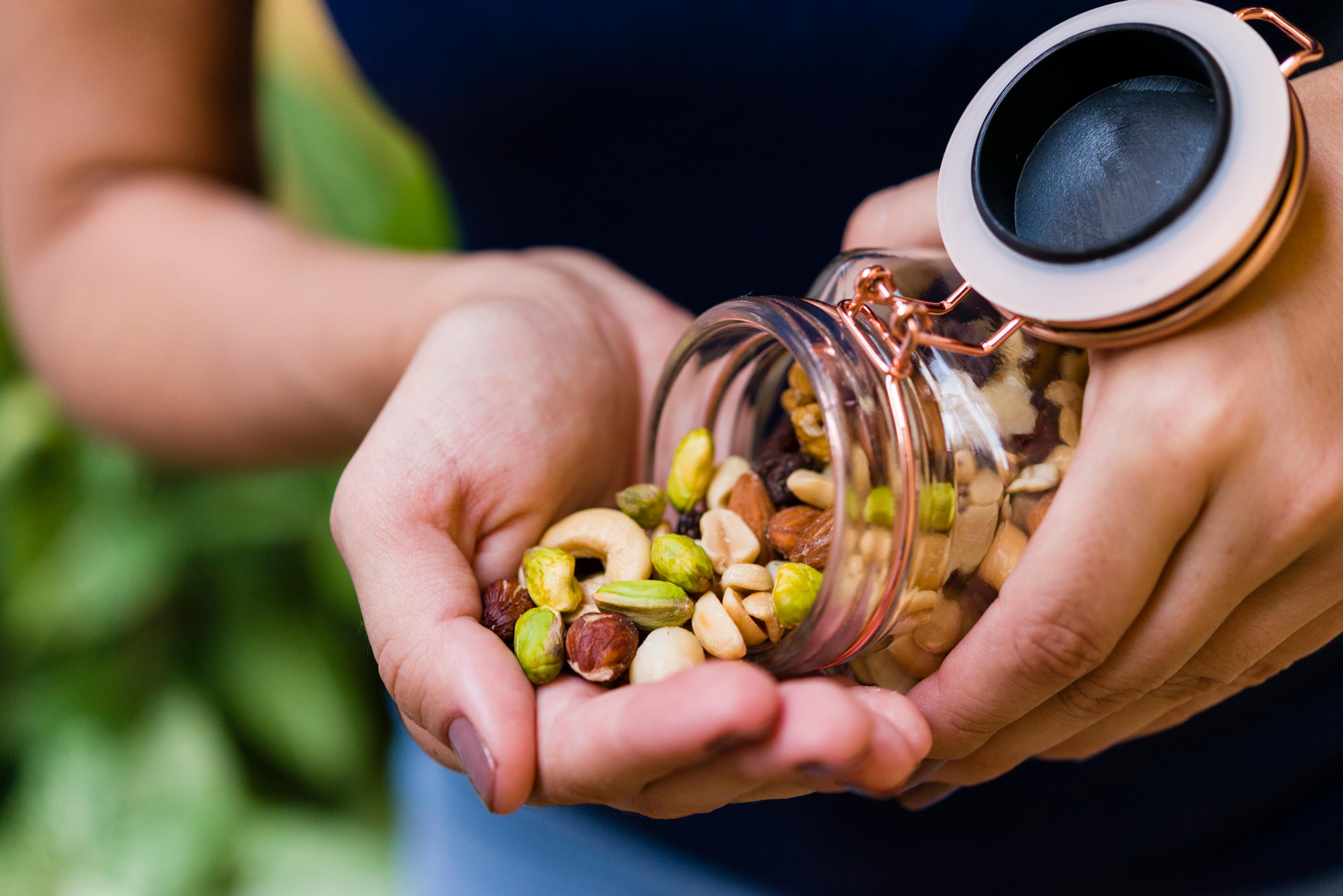What Does Physical Well-being Mean?
| 1 min read

00:00
00:00
About the Show
On this episode, Chuck Gaidica and Cindy Bjorkquist discuss what physical well-being means and how we can recognize that our behaviors have a significant impact on our lives.
“What we’re talking about with physical well-being, it’s the promotion of physical activity. It’s not just going for a run. It’s parking across the parking lot when you go to the grocery store.” – Cindy Bjorkquist
In this episode of A Healthier Michigan Podcast, we explore:
- How we can achieve physical well-being through physical activity.
- Understanding how fueling ourselves through good nutrition can lead to better physical well-being.
- Focusing on our mental well-being through meditation and mindfulness to help further our physical well-being.
Transcript
Chuck: This is A Healthier Michigan Podcast, episode eight. Coming up, we’re going to talk about what physical well-being means.
Chuck: Welcome to A Healthier Michigan Podcast, the podcast dedicated to navigating how we can all improve our health and well-being through small healthy habits we can start implementing right now today. I’m your host, Chuck Gaidica. Each week, we’re going to sit down with a certified health expert from Blue Cross Blue Shield of Michigan to do a deep dive into topics, and we’re going to cover a lot of territory. We’ll talk about nutrition, well-being, stress reduction.
Chuck: In this episode, we’re going to be talking a lot about physical well-being. How do we get into that? We all know, go for a power walk, 7500 steps a day. We’re going to go farther than that, but you’ve got to know who’s back with us again. Let me just applaud for this. Yay. Cindy Bjorkquist is back. Good to see you again.
Cindy: Oh, that’s so nice. Thank you. Good seeing you.
Chuck: Yeah. Well, we don’t have a live studio audience, so I thought I would throw that in. Cindy is currently Director of Health and Wellness and Programs at Blue Cross Blue Shield of Michigan, the largest health insurer in the state, if you didn’t notice, 4.5 million members. You’ve got over three decades of experience in health and wellness in the industry.
Chuck: In the last episode, we talked about how we’re going from using the phrases wellness to well-being. This time, we want to talk about balance. How do we get our lives in balance, and how can we do that with more of the physical, the practical things, right?
Cindy: Yeah, so remember, when we talked about well-being, the physical was something that you don’t want to forget about. I loved that point in the last podcast when you said that. We’re not forgetting about that. Think of it as it’s the healthiest that you can be at your point at your life, and so there’s this health continuum.
Cindy: We’re born and we age into sometimes chronic conditions and pre-chronic conditions. Your weight may go up and your blood pressure may go up, so at any point in time, the physical, trying to be as healthy as you can at any point in time. It’s just not the absence of disease, because some people say, “Well, I don’t have diabetes,” or, “I don’t have a weight issue or a blood pressure issue.”
Cindy: It’s the idea, broadening that now under well-being into living a balanced state of mind, body, and spirit. You have to think of all of them, not just the body, which is what we’re going to talk about today, exercising, eating right, all that kind of stuff, but it’s the sense of, “My mind is healthy, and then my spirit is healthy.”
Cindy: This physical one happens to be the most visible of those three. If you see a person who is out of breath walking, you know they probably need to go on that walk that you just alluded to. If you see a person who may have carrying extra weight or if you see a person who has diabetes and they’re actually having to control that, so it’s the outward visible. Mind health is really hard to capture, and so that’s something completely different.
Chuck: Don’t talk about me like that. You’re looking right at me, but you’re right because here’s the thing. This journey that we’re on called life, my life was 25 years, grab my shoes, three mile jog. Never did long distance. Well, guess what? The left knee goes wacky. I can’t jog anymore, so I miss it like crazy, so I don’t have a chronic disease but I’ve had to adjust my physical daily activity to more walking, to more power walking, so that fits, too. It doesn’t have to be something gargantuan that you’re facing in life. It can be something you just have to navigate around.
Cindy: Absolutely, and that’s okay. If you can’t run anymore, you walk. That’s completely okay. Some people think, “Well, I have to run.” You burn about the same amount of calories walking or running a mile.
Chuck: I know. My wife told me that a long time ago.
Cindy: Did she? She’s smart.
Chuck: She is very smart, but as a man’s brain, I can tell you, it doesn’t make sense unless I’m sweating and bleeding, you know what I mean?
Cindy: I know, I know.
Chuck: When you go hiking, unless you’re really doing it, you’re thinking, “Oh, this isn’t burning the same calories.” It doesn’t make sense, but it does, right?
Cindy: Yeah, it does, it does. Remember, the Blue Zone books with Dan Buettner, those people weren’t runners who lived to be over 100. They just did physical activity every day. Their surroundings and their environment prompted them and triggered them to do physical activity.
Chuck: See, I feel better already.
Cindy: Well, there you go, there you go.
Chuck: Now I know I’m going to make it because … All right.
Cindy: So physical, what we’re talking about with physical well-being, it’s the promotion of physical activity. We talked about that. It’s not just going for a run. It’s parking across the parking lot. That’s an example. People use that all the time. When you go to the store, don’t try to find the closest slot. Park way at the end and then walk all the way in.
Chuck: Right, or instead of the elevator, take the stairs, right?
Cindy: Absolutely, absolutely. Don’t get a riding lawnmower. Get a push lawnmower. Walk around.
Chuck: Who does that?
Cindy: If you want to walk with your friends, then instead of going out … So what I’ll do, I have a friend set, and instead of sitting down at a restaurant, we axed the whole go to the restaurant quarterly, because I have friends that I have from a previous job. We actually meet and talk and then we go for a walk. You walk and talk. You say, “Hey, let’s go for a walk and let’s talk about things.” I have a best friend that I do that with, so that is the whole promotion of physical activity throughout your day. That’s important. Not just the cardio, though. It’s also the strength training, which is huge as we age. We start to lose muscle at 30 years old. Remember when we were 30, way back then?
Chuck: Oh yeah. I’m 30 on each side now.
Cindy: That’s a good one. So if you start to lose muscle at 30, you have to maintain your muscle because your muscle translates to higher metabolism because you’re chunking out calories throughout the day, so training, just lifting some weights…
Chuck: When you say that, there’s that commercial. I forget which chain that is. I don’t know. I won’t even mention it if I can figure it out. “We pick things up and we put them down.” It’s kind of a funny thing, but you’re not talking about significant becoming Arnold. You’re just saying you need to use some weights in your life, right?
Cindy: Tap into the muscle that you have and make sure that you either A, don’t lose it as you age past 30, or regenerate it. They have post-menopausal studies on women doing lightweight lifting and the effects that has on their muscle tone.
Chuck: And on bone density too, right?
Cindy: Yeah, exactly. You’ve been reading your research.
Chuck: Well, I have a wife, and 37 years, she keeps coming home for dinner, so I know it works out.
Cindy: I love it, I love it. So physical activity, so that’s a part of this whole realm that we’re talking about with physical well-being, so physical activity. Then, beyond that is nutrition. What do you put in your mouth? Do you eat correctly, correctly meaning do you also get enough water? That’s super important.
Cindy: The third part of this is mental well-being, so it’s you and your mind. Your mind has to be healthy. You have to clear it. You can do meditation. You can do mindfulness. It’s the physical, the nutrition, and the mental well-being all working in tandem together. If you need to change your behavior in any one of those areas, then that’s where this new research for well-being is coming into of changing your defaults, which we talked about in the last podcast.
Cindy: If I wake up in the morning and I really want to change because I want to start walking every morning but I just can’t get myself out of bed, there are things that you can do to change your default setting. You can journal about it saying, “My goal is that I am actually going to get out of bed and not hit the snooze and I’m going to go walking,” or you tap into a friend. I did this one time. We text each other in the morning and we send selfies of ourself while we’re running, we’re a runner, but running in the morning, and so, “Did you get out of bed?” “No, I stayed,” so it makes you feel guilty, but it’s the same kind of thing. You don’t have to be with that person.
Chuck: It’s also encouragement.
Cindy: Yeah, right, right, so tap into your social circles to help you change your behaviors. There is some research out there that a majority of this industry follows by BJ Fogg, and what he has shown us is that if you’re going to start, say, exercising or eating, it’s not like you want to say, “I’m going to lose 50 pounds this month.” It’s, “I’m going to lose maybe a pound a week.”
Cindy: Make it realistic. Make small changes and small goals and you achieve those, pat yourself on the back, and then you move forward, because the daunting goal that I’m going to run a marathon next month isn’t realistic and you can’t work towards that. So, this idea of small behavior changes and small outcomes along the way is really where the industry is at.
Chuck: Getting some people to help cheer you on, that idea of having friends and sending these photos back and forth, if you’re trying to lose a few pounds and you’ve got a pretty good goal, when you lose three and you’re looking at the journey at the end of the tunnel, that can be daunting all by itself if you don’t have people saying, “Come on. You’ve just lost three pounds in a week and a half. Are you kidding me?” because people lose sight of that.
Cindy: Some people have the eternal, say, the ability to make behavior changes easily. That’s not the people that I’m talking about. I’m talking about the people that struggle every day to try to change their life in one of these ways, to try to exercise, to try to eat right, and this idea that when I went up to Traverse City last weekend with my 22-year-old son and we were traveling up there, you know what he said to me? This is cool. He said to me, “Let’s eat eggs before we leave because I don’t want to have to go fast food on the way up there.” Him and his absorption of us talking about that constantly has changed him. He changes the friend sets that he’s around with this exercising and nutrition, so it is this social contagion.
Cindy: If you want to, and I’ve got this great example on this whole idea of changing your behaviors, that I had a son who played baseball at East Lansing. So, when I went to those games, I had a friend set who were runners, and so we would all talk about running and training and the latest shoe out and all that kind of stuff.
Cindy: When my other son started playing lacrosse, I didn’t really know a lot of those parents and I would sit in the stands and I would show up because I ran to the lacrosse field and I was sweaty when I got there and I was sweating and I had my shoes on. So, we went from, “Hey, hi, my name is Cindy and my son plays out there,” to the conversation started, “You ran here?” and, “Oh, you’re a runner?” and, “Oh, I see that you’re wearing New Balance shoes.”
Cindy: Then, at the end of the season, it was a social contagion. We had a social circle conversation, so you can influence others in their behaviors if you have a strong personality, but the flip of that is if you’re struggling with this physical health and this physical well-being, find some people who will stimulate you and incent you to change and you might change yourself from that.
Chuck: You can spot those people. If you’re not surrounded yet, you can spot them. So you mentioned this brand of shoes. I’ve worn New Balance myself. Isn’t that what we’re trying to achieve in our lives, this new balance? When you talk about these multi-facets, that can seem daunting by itself. Should we just tackle one area at a time so we don’t get swamped? I mean, if we have a diet to go on, maybe it’s okay to just concentrate on that for a few weeks.
Cindy: Oh, absolutely, and coaching protocols, because in every situation there are a ton of companies out there that have coaching available. Blue Cross has coaching available, so you can go in and talk to someone about your lifestyle. They will do exactly what you just said. It won’t be, “I want to change four things in my life at once.” You isolate and target and do a goal around one.
Cindy: It’s interesting, and we talked earlier about this whole Blue Zone book and Dan Buettner. I’m not promoting his books, but I think his books are fascinating. They came out with the nine habits that you should do to have the highest quality, and some of these are physical health, and so if I could just briefly walk through the nine habits.
Chuck: No, go. I read it a long time ago whenever it came out.
Cindy: Yeah, it was really cool. So, one of them was in these areas of the world that had the healthiest and longest living centurions, they had moderate regular physical activity, so they weren’t runners and they weren’t marathon runners, but they were people that walked a lot. They walked and they talked.
Chuck: With their canes. I saw a video and they’re actually over 100 years old, every single day.
Cindy: There was a guy who I lived next to who recently passed two years ago. His name was Mack. When I moved into this house 13 years ago, I would see this guy with a walker walk around my cul-de-sac every day and outside of my office on the weekends and I would see him.
Cindy: So, I actually introduced myself to his son, who he lived with, and he said that he used to be one of those guys that walked in the field and did something environmental, but he made the connection between physical activity and longevity of life, and so he walked every single (day) … It was the cutest thing in the world.
Chuck: But he did it.
Cindy: Yeah, and then when it was winter, he would go to a local mall, so that’s what you see is people acknowledging physical, so that’s the first one, so moderate regular physical activity.
Cindy: The second one is identify a sense of purpose, and this is huge. So, if you want to make a change in your life with the physical, which we’re talking about, or nutrition or even your mind, if you identify your sense of purpose in the morning and you think about that, then you actually have a better aptitude and a better success rate of achieving your goal.
Cindy: What Dan in the Blue Zone book found was these people, the 101-year-old fisherman, didn’t “retire.” He would wake up every morning, slowly walk and get out of bed, slowly walk down the dock and fish for dinner, get those fish for dinner. That was his sense of purpose, and his wife, who was 101, took care of the grandkids, so identifying your sense of purpose helps you with those changes.
Chuck: You say this. This is so interesting to hear you say that. I think a lot of people think their sense of purpose has to be this big giant bold audacious, “I’m going to solve a world health crisis.” Most of us aren’t going to get to that point, and so having a sense of purpose that keeps it to scale. I mean, if you want to go dig wells in Africa, God love you, really, but not everybody’s wired to do that.
Cindy: That’s true.
Chuck: Really, just bring it home and be comfortable in that setting in your context. I think that’s really good advice.
Cindy: Your sense of purpose may change, too, throughout your life. Raise your kids and then when they’re in college, it’s something else. The third rule that they had along these lines of physical well-being is that … Have you ever heard of the 80% rule? So you probably read this in the book. You need to stop eating when you’re 80% full, and that’s one of the characteristics that he found in these places in the world that had more centurions, so don’t eat until you’re stuffed. Stop when you’re 80% full.
Chuck: It’s tough with five kids growing up because I’m a crust guy. They knew if they ate the best part of the pizza, I’d get the crust, or the peanut butter and jelly sandwich. Sorry, but I’m past that now.
Cindy: I love it. A couple more things along the same lines really quickly is engagement in spirituality or religion. That follows the mindfulness research that we’re seeing in well-being today, this whole focus on meditation and focusing on the mind and getting the mind straight, and then engagement in social life. They have a huge community.
Cindy: That also aligns with the research in well-being is he found in these places in the world that these people had a huge “social life” or sense of community. You, if you go to a church or if you have a circle of friends or if you have five girlfriends, make sure you seek them out and keep talking to them, because there’s research on loneliness and how that actually breeds you to have a shorter lifespan. So, that’s also a huge thing.
Chuck: You’re saying something here, and I’ll tell you right now, I’ve noticed this difference between my wife and I because you know that men and women are different, right?
Cindy: Right.
Chuck: So, if a lady goes into a bathroom at a restaurant, she may come out with three new friends, seriously. Susan will come out walking to people I don’t know. She doesn’t know who they are. Men are not wired the same way. We have a hard time sometimes finding those same friendships that you find easily, I think.
Cindy: That’s actually a really good point, yeah. There might be a gender bias in that.
Chuck: Well, yeah, but it’s true. I don’t walk out of the bathroom going, “So, what do you want to do Saturday?” Sorry, I interrupted.
Cindy: Yeah. No, but to that point, if you are not external person or someone who talks a lot or makes friends and stuff like that, then there is that default research that try to change your brain. Maybe when you journal in the morning, you write down that, “I’m going to have a conversation with one new person today,” or something like that.
Chuck: Oh yeah. Okay, because that’s a changing of habit.
Cindy: Yeah, yeah, because there is research. I can’t remember the research to quote it, but there was a research article that I read about if you talk to the amount of people, because I was thinking of my dad, who was a schoolteacher, the number of people that you talk to during the day actually impacts your quality of life, which impacts your happiness and your longevity.
Chuck: Wow.
Cindy: So, if you’re like me, like a Chatty Cathy and you talk to a ton of people … I talk to people at Meijer, I talk to people everywhere I go. I got stuck on my roof blowing my gutters out the other day and my ladder fell, so I was yelling down the road, “Hey, you walkers,” and I made a new friend and she lives around the corner.
Chuck: See? I don’t stand on my roof and make new friends. I don’t want to hold you, because how many points did you get through of the nine?
Cindy: Okay, one more, so I have one more. Make family a priority. One of the nine habits of these people was making family a priority, and so that’s something that goes back to mindfulness as well. When you’re with your family, make it a priority. Be focused and be present with them. That will develop that relationship. Don’t be on your phone. Don’t be talking to other people. Give them your full attention. That’s one of the habits of being in a healthy, high level well-being state.
Chuck: You mentioned your son, sons or son seeing you at the basketball game and kind of calling you out because you got hit by the basketball. You were texting or something. I’ve got a son. He’s 31, and if he’s over, even if somebody says something, I’m a learner, right? I need to learn stuff. I’ll hear one of the kids say something. I started Googling it. I’m not paying attention to emails. “Dad, put your phone down.” He calls us out. I appreciate it, actually. I really do.
Cindy: That’s very cool.
Chuck: Well, it’s good to have you back. I’m looking forward to our next episode. We want to let you know that we’re going to continue this discussion about well-being and wellness. Thank you for listening. This is A Healthier Michigan Podcast brought to you by Blue Cross Blue Shield of Michigan. If you like the show, you want to know more, you can check us out, here it comes, AHealthierMichigan.org/podcast. You can leave a review. You can leave a rating on iTunes or Stitcher. To get new episodes on your smartphone or tablet, be sure to subscribe to us on Apple Podcast, Stitcher, your favorite podcast app.
Chuck: Next week, we’re going to be talking a lot more about happiness, this idea of journaling and gratitude. If you write it down, for some of us, that’s counterintuitive. What do you mean, write it down? Why am I going to be grateful, or I hope to be grateful today? Here’s my takeaway today. Hang on. I’m going to stand on the roof and I’m going to look for Mr. Johnson next door. “Hey Mr. Johnson, you want to be my friend?” You think that would work?
Cindy: I think it’s going to work. I got her phone number in my phone now in case I get stuck up there again.
Chuck: Oh, get out.
Cindy: I do.
Chuck: You’ve inspired me. Cindy Bjorkquist, Chuck Gaidica. Thanks for being with us. We’ll see you next time for our next episode.





